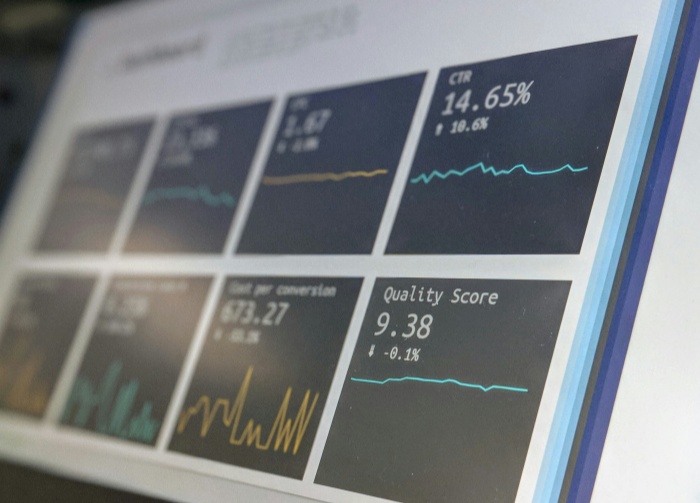Beyond the Hype: A Practical AI Agent Useful Case Study for Every E-commerce Seller in 2025
1. Introduction: The Dawn of the Autonomous Store
The conversation around Artificial Intelligence in e-commerce is evolving. For years, we’ve heard about AI-powered recommendations and analytics dashboards. While useful, these are passive tools. They present data, but they wait for you, the seller, to take action. Today, we are in a new era: the era of the AI Agent.
An AI Agent is not just another tool; it's a proactive, autonomous digital employee. It's a system you can give a goal—like "lower my ad costs" or "increase my store's conversion rate"—and it will independently plan, decide, and execute the tasks required to achieve it. It works 24/7, learns from its results, and reports back on its progress.
This article moves beyond the hype to provide a practical breakdown of how e-commerce sellers are already using this technology. It is a collection of useful case studies, demonstrating how AI agents are creating tangible value on specific platforms, from massive B2B marketplaces to niche Etsy shops. This is your guide to the real-world application of AI agents in e-commerce today.
2. The Core Value Proposition: Why AI Agents Are a Game-Changer
What truly separates an AI Agent from previous software is its ability to close the loop between insight and action. It’s a fundamental shift from reactive management to proactive, autonomous operation. This new paradigm is built on three core capabilities that deliver immense value. AI Sales Agents are at the forefront of this shift, autonomously handling crucial sales tasks such as prospecting, lead nurturing, and follow-ups, enabling businesses to scale their sales efforts without additional manual input. This evolution has given rise to the AI SDR platform — a new class of systems that combine sales automation, conversation intelligence, and autonomous decision-making to handle end-to-end outbound operations. One example is AI SDR, which applies this “insight-to-action” loop to outreach by automatically qualifying intent, triggering the next best follow-up, and booking meetings without constant human intervention.
First is 24/7/365 Operations. Your business doesn't stop when you log off, and neither does your AI Voicebot. It can manage your ad bids during peak global shopping hours, respond to a customer inquiry from a different time zone, or reprice a product at 3 AM to win the Buy Box. This constant vigilance ensures you never miss an opportunity and can run a truly global operation without a global team.
Second is Hyper-Personalization at Scale. Traditional personalization relies on simple "if-this-then-that" rules. An AI Agent, however, can create deeply dynamic experiences in real-time. It analyzes a user's entire journey—clicks, hesitations, past purchases—to dynamically adjust the products they see, the offers they receive, and the content they engage with. It’s the equivalent of having your best salesperson personally guide every single visitor through your store simultaneously.
Finally, and most importantly, is Complex Task Decomposition. This is the agent's "intelligence." You provide a high-level, strategic goal, and the agent breaks it down into a series of smaller, executable steps. A goal like "improve my profit margin on Product X" is autonomously translated into a workflow: 1. Analyze competitor pricing. 2. Adjust my price to be competitive but profitable. 3. Reallocate ad spend to target high-intent keywords for this product. 4. Monitor sales velocity and profit data. 5. Report results and refine the strategy. This ability to think and act strategically is what makes AI agents a true game-changer for any e-commerce business.
3. AI Agents in Action: Platform-Specific Case Studies
Theory is one thing; practical application is another. Here’s how AI agents are already delivering results across the e-commerce landscape. We’ll start with a complex, high-impact example and then explore how these principles apply to sellers of all sizes.
For Enterprise & B2B Platforms
Case Study 1: The Big Data & Marketing Intelligence Agent
- Client Profile: A large B2B e-commerce platform from China, facing the monumental task of processing massive volumes of daily user data.
- The Challenge: The platform was swamped with hundreds of thousands of unstructured user search queries every day. Manually analyzing this data to inform marketing strategy was slow, expensive, and critically inaccurate. This delay meant missed opportunities, wasted ad spend on irrelevant keywords, and a growing gap between user intent and marketing actions.
- The kua.ai Solution & Agent Actions: To solve this, kua.ai developed a custom AI agent specifically designed for high-volume data interpretation.
- Data Ingestion: The agent was built to connect directly to the platform's data stream, ingesting up to a million raw search queries daily.
- AI-Powered Analysis & Tagging: Using advanced Large Language Models (LLMs), the agent didn't just match keywords; it understood semantics and user intent. It automatically categorized queries by product interest ("bulk order for 5mm steel bolts"), user type ("seeking supplier"), and purchase readiness, then applied precise, structured tags to each one.
- Overnight Processing: The agent completed this entire complex analysis overnight, every night.
- The Business Impact: The results were transformative. The marketing team started each day with a perfectly structured, actionable intelligence report on exactly what their users wanted yesterday. This enabled them to launch highly relevant and timely campaigns instantly. They slashed ad costs by eliminating irrelevant keywords and boosted organic traffic by creating SEO content that perfectly matched buyer searches. This massive gain in efficiency and marketing accuracy was achieved at a fraction of the cost of their previous methods, demonstrating the profound ROI of a well-deployed AI agent. Similar benefits can be seen with solutions like AI strategy consulting, which help businesses align AI adoption with real workflows to unlock long-term value.

For Marketplace Sellers
While the scale of the previous case study is impressive, the core principles of automation and intelligent action are now accessible to all sellers, especially on competitive marketplaces like Amazon and Walmart.
Case Study 2: "The Autonomous PPC Ad Manager" (Amazon)
- Seller Profile: An FBA seller of private-label kitchen gadgets on Amazon.
- The Challenge: The seller was spending heavily on Amazon Advertising (PPC) but struggled to get their Advertising Cost of Sale (ACOS) below 40%, which was eroding their profit margins. Managing the bids and keywords for dozens of products was a full-time job.
- The Agent Solution: The seller deployed an AI agent with a simple goal: "Lower my ACOS to 25% while maintaining sales velocity." The agent connected to their ad account and went to work, performing tasks that would take a human analyst days to complete. It continuously analyzed search term reports, promoting high-converting customer search terms into exact-match keywords and negating irrelevant ones that wasted money. It dynamically adjusted bids 24/7, increasing them during peak conversion hours and lowering them during lulls. Most importantly, it reallocated the budget in real-time, pulling funds from underperforming campaigns and pushing them toward the winners, maximizing the overall return.
- The Business Impact: Within a month, the seller's ACOS dropped to 23%, and their total sales actually increased by 10% due to the improved ad efficiency.
Case Study 3: "The Proactive Inventory & Reputation Guardian" (Amazon)
- Seller Profile: A multi-product brand on Amazon concerned about their Inventory Performance Index (IPI) score and negative reviews hurting their rankings.
- The Challenge: Avoiding FBA stockouts during peak seasons while also preventing long-term storage fees on slow-moving items was a constant balancing act. Furthermore, a single negative review left unanswered could tank a product's sales momentum.
- The Agent Solution: An agent was given two goals: "Keep IPI above 450" and "Respond to all negative reviews within 12 hours." The agent used predictive analytics—factoring in historical sales, seasonality, and upcoming events like Prime Day—to forecast demand and prompt the seller with exact quantities and dates for FBA restocks. It also identified aging inventory and suggested specific actions, like creating an Outlet deal, to clear it before storage fees hit. Simultaneously, it monitored all product reviews. When a 1- or 2-star review appeared, it instantly alerted the seller and generated a polite, solution-oriented draft response based on the customer's specific complaint.
- Bridging to a Solution: While large-scale sellers might build custom agents, a new generation of tools is democratizing this power. For small to medium-sized businesses, and particularly for solo entrepreneurs, leveraging a purpose-built solution is key. This is precisely the niche that a service aims to fill, offering an accessible AI agent designed specifically for the challenges faced by solo Amazon sellers.
Case Study 4: "The Buy Box & Pricing Strategist" (Walmart)
- Seller Profile: A reseller on Walmart Marketplace competing for sales of popular electronics.
- The Challenge: On Walmart, winning the "Buy Box" is everything, and it's almost entirely driven by price. Manually tracking competitor prices and repricing products was impossible to do effectively.
- The Agent Solution: The seller used a repricing agent with a clear rule: "Win the Buy Box for my top 10 SKUs, but never drop my profit margin below 12%." The agent monitored competitor prices in real-time. When a competitor dropped their price, the agent would instantly reprice the seller's product to be $0.01 cheaper, as long as it didn't violate the profit rule. When a competitor went out of stock, the agent instantly raised the price back up to maximize profit.
- The Business Impact: The seller's Buy Box ownership percentage soared from 20% to over 75% for their key products, leading to a direct and significant increase in daily sales without sacrificing their minimum profit margin.
For Standalone Store Owners
For sellers on platforms like Shopify and WooCommerce, the challenge isn't just winning a Buy Box; it's building a brand and driving your own traffic. Here, AI agents act as growth hackers and brand builders.
Case Study 5: "The Automated Content & Conversion Engine" (Shopify)
- Seller Profile: A direct-to-consumer (DTC) fashion brand on Shopify.
- The Challenge: The brand needed to consistently create content to drive organic traffic and find a way to convert more of its hard-won visitors into customers.
- The Agent Solution: The brand used an AI agent focused on content and conversion. They gave it the goal: "Drive organic traffic and increase visitor-to-purchase conversion by 2%." The agent began by generating SEO-optimized blog post ideas based on current fashion trends. Once approved, it wrote the articles, then automatically repurposed them into multiple social media posts for Instagram and TikTok. On the store itself, the agent personalized the experience for each visitor, showing them product recommendations based on their real-time behavior. If a user was about to leave with items in their cart, the agent would trigger an exit-intent pop-up with a unique, limited-time discount code.
- Taking the Next Step: Implementing such a comprehensive AI strategy can seem daunting. For Shopify sellers aiming to leverage these advanced agent capabilities, reaching out to specialists can provide a clear roadmap. To learn more about how AI agents can be applied in the Shopify domain, we recommend you contact the expert team at kua.ai.
Case Study 6: "The Proactive SEO & Technical Specialist" (WooCommerce)
- Seller Profile: A small business selling organic food products on a WooCommerce site.
- The Challenge: The seller lacked the technical expertise and time to properly optimize their site for search engines.
- The Agent Solution: An SEO agent was deployed to act as an automated technical specialist. As the seller added new products, the agent automatically generated SEO-friendly titles, meta descriptions, and image alt-text. It analyzed site content and built an internal linking structure to improve search engine crawlability and page authority. It also regularly scanned for broken links and monitored page load speeds, autonomously compressing images that were slowing the site down.
- The Business Impact: Over three months, the store's organic traffic increased by 40% as product pages began ranking higher in search results for relevant keywords, all with minimal manual effort from the owner.
For Niche & C2C Platforms
Even for artisans and individual sellers on platforms like Etsy and eBay, AI agents can provide a crucial competitive edge.
Case Study 7: "The Creative Trend & Niche Hunter" (Etsy)
- Seller Profile: A creator of handmade home decor on Etsy.
- The Challenge: Staying ahead of trends and ensuring her unique products were seen by the right buyers.
- The Agent Solution: The seller used an agent to find her next bestselling product idea. The agent analyzed trends across Pinterest, Instagram, and competitor Etsy shops, identifying that "cottagecore" and "maximalist decor" were surging. It delivered a data-driven creative brief with specific, popular motifs. Once the seller created the new product, the agent optimized the listing by generating a list of highly relevant, long-tail tags and keywords that actual buyers were using.
- The Business Impact: The new product line became a top seller within weeks, and its visibility in Etsy search was significantly higher than the seller's previous listings.
Case Study 8: "The Intelligent Pricing & Auction Strategist" (eBay)
- Seller Profile: An individual selling vintage electronics on eBay.
- The Challenge: Pricing unique, collectible items correctly was a guessing game that often led to lost profit or items that never sold.
- The Agent Solution: Before listing a vintage camera, the seller's agent analyzed all historical eBay sales data for the same model. It factored in the item's condition, included accessories, and recent price trends to recommend an optimal starting bid and a "Buy It Now" price. For an international buyer, the agent even pre-filled the customs declaration form (CN22), suggesting the most cost-effective shipping method.
- The Business Impact: The seller sold items faster and for an average of 15% more than their previous estimates, and the time spent on administrative tasks like shipping was cut in half.
4. The Future is Autonomous: What's Next on the Horizon?
What we've explored here is just the beginning. The next wave of AI agents will be even more capable. Developer Agents, like the much-discussed Devin AI, will allow non-technical sellers to build custom store features or even entire e-commerce sites using simple natural language.
On the flip side, Shopper's Agents will emerge, where consumers deploy their own AI to scour the web, compare products, and negotiate prices on their behalf. This will force e-commerce sites to become "agent-friendly," with structured data and APIs unified in API managers for these agents to interact with.
Ultimately, we are heading towards an interconnected Business Operating System, where a company's marketing agent, supply chain agent, and customer service agent work in concert. The human seller will transition from being an operator to a CEO, setting high-level strategy and letting their autonomous team handle the execution.
5. Conclusion: Your First Step into the Agent-Powered Era
The AI Agent is not a futuristic concept; it is a present-day reality delivering efficiency, personalization, and a distinct strategic advantage to e-commerce sellers. As we've seen through these useful case studies, whether you are a B2B enterprise, an Amazon FBA seller, a Shopify brand, or an Etsy artisan, there is a practical application for this technology in your business.
Don't be intimidated by the possibilities. The journey into the agent-powered era can start small. Identify the single biggest bottleneck in your operation—be it ad management, customer inquiries, or content creation—and explore the growing number of AI agent tools designed to solve that one problem.
By embracing this technology, you are not replacing your role; you are enhancing it. You are freeing yourself from the mundane and repetitive tasks to focus on what you love: your products, your brand, and your customers. The autonomous store is here, and it's ready to go to work for you.
Join 200,000+ Sellers Growing with Kua.ai
You may also interested...

5 Benefits of Creating Beauty Photos and Makeup Close-Ups with AI

Why Automation Is the Backbone of Effective MarTech Strategies













